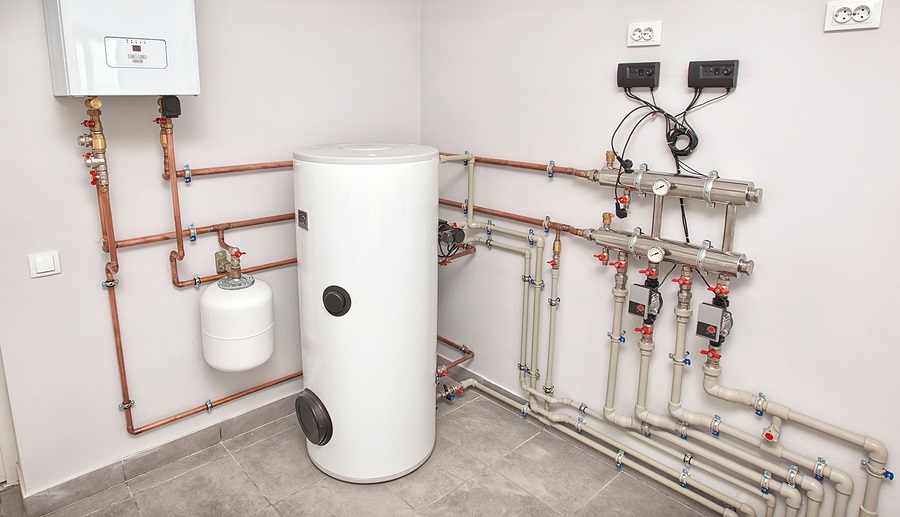Common Boiler Problems and DIY Troubleshooting Tips
Boiler problems can be a major inconvenience, especially during the colder months. Not only can they leave you without heat or hot water, but they can also lead to costly repairs if not addressed promptly.
However, many boiler issues can be resolved with some simple troubleshooting techniques. In this guide, we will discuss common boiler problems and provide DIY tips to help you fix them.
When something goes wrong with our boiler, it can feel like the warmth and comfort of our home are hanging by a thread. From no heat in the dead of winter to strange noises in the night, boiler issues are not just inconvenient; they can be downright distressing.

Common Boiler Problems
1. No Heat or Hot Water
This is perhaps the most immediate concern for homeowners. Possible causes range from broken diaphragms and airlocks to issues with the thermostat or low water levels. Here are some troubleshooting tips to help you address this issue:
- Check the thermostat: Make sure that the thermostat is set correctly and in working condition. If the temperature setting is too low, adjust it to a higher temperature.
- Check the power supply: If your boiler is not turning on at all, check the power supply and make sure it is connected and switched on.
- Check for error codes: Many boilers have an error code system to indicate any issues. Refer to your boiler’s manual to determine what the error code means and how to fix it.
- Inspect the pilot light: If you have a gas boiler, check the pilot light to see if it is lit. If not, try relighting it according to your boiler’s manual.
- Check for frozen pipes: In colder months, frozen pipes can prevent hot water from flowing through your system. Inspect your pipes and thaw them out if necessary.
If none of these troubleshooting steps work, it may be best to call a professional plumber or boiler technician, like our team at Staggs Plumbing, to assess the issue.
2. Strange Noises
Boilers often make a variety of sounds during normal operation, but banging, whistling, or gurgling noises may indicate air in the system, low water pressure, or imminent pump failure.
If you hear strange noises coming from your boiler, it could be a sign of an underlying issue. Here are some common noises and their potential causes:
- Whistling: This noise could indicate a build-up of limescale in your system, causing restricted water flow. You may need to flush the system or descale your boiler.
- Banging: This could be due to a faulty pump, air in the system, or a build-up of sediment. Contact a professional to diagnose and fix the issue.
- Gurgling: Air trapped in your pipes can cause gurgling noises. Bleed your radiators to release any trapped air.
3. Leaks and Drips
A variety of issues can cause leaks, depending on where the water is coming from. Common culprits include pressure valve faults or pump seal deterioration.
Visual aids such as diagrams and photos can help you pinpoint where the problem might be originating.
- Identify the source: Use visual aids to find where the leak originates, but don’t attempt to fix it unless it’s a simple issue like tightening a joint.
4. Low Pressure
Low pressure is a common issue. If your boiler’s pressure gauge reads below 1 bar, it could indicate a problem. The most common cause of low pressure is a water leak in the system. To troubleshoot this issue, you can follow these steps:
- Check for visible leaks: Inspect all visible pipes and connections for any signs of water leakage.
- Check the pressure relief valve: Sometimes, the pressure relief valve may be faulty or malfunctioning, causing a drop in pressure. If this is the case, you will need to replace the valve.
- Re-pressurize the boiler: If there are no visible leaks and the pressure relief valve is working correctly, you can re-pressurize your boiler.
DIY Troubleshooting Tips
Before you start, remember that your safety is paramount. Never attempt repairs that involve removing the boiler casing. Not only is it dangerous, but it’s also illegal if you’re not a certified engineer.
If you’re unsure about any of the steps involved, it’s always best to call a professional. However, for minor issues that don’t require opening the boiler casing, here are some DIY troubleshooting tips:
- If your boiler won’t turn on, Check to see if it is receiving power and that the thermostat is set correctly.
- No hot water or heating: Make sure that the pilot light is on and that the boiler pressure is at an adequate level.
- Odd noises: If your boiler is making strange noises, it could be a sign of impending failure. Call a professional immediately.
- Radiators not getting hot enough: This could be due to air trapped inside the system. Bleed the radiators to release any built-up air.
- Boiler keeps turning off: Check the water pressure and make sure it’s within the recommended range. If not, re-pressurize the system.
These are just some common troubleshooting tips that can help you identify and fix minor issues with your boiler. However, as mentioned earlier, always prioritize your safety and consult a professional.
The Importance of Regular Maintenance
Many boiler problems can be headed off before they start with regular, professional check-ups. Maintenance ensures your boiler is working efficiently, catching minor issues before they become major headaches.
When searching for a reliable boiler service provider, look for licensed professionals with strong customer reviews. A reputable technician will not only perform routine maintenance but also offer tips for keeping your boiler in top shape between visits.
Understanding the basics of your home’s boiler system and tackling small issues can save you time and money. However, recognizing when to call in a professional is just as important as knowing how to bleed a radiator. When in doubt, it’s always safer and more prudent to consult with an expert.
Get In Touch With Our Team
Feeling unsure about DIY or need a bit of help? It might be time to get in touch with Staggs Plumbing at 972-833-8660, where expert advice is always just a call or click away. With the right care and attention, you can ensure your boiler remains in good working order for years to come.


